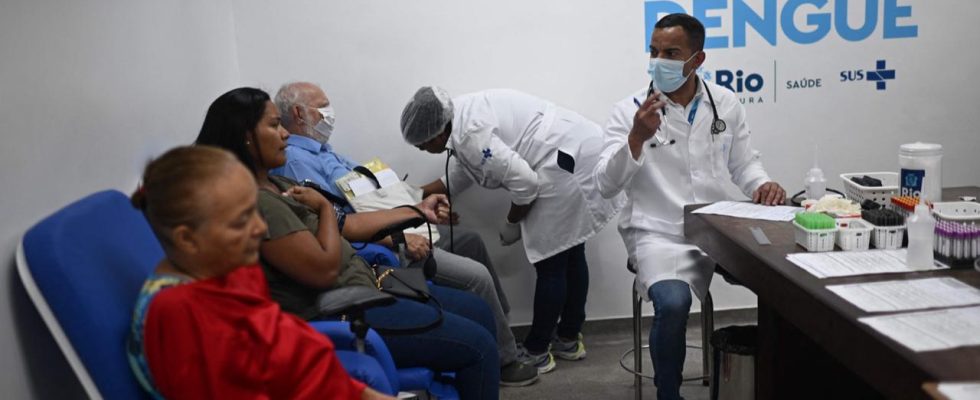People are sweating and celebrating in Rio – the carnival is underway. But dengue fever, which is transmitted by mosquitoes, is also spreading. The health emergency has been in effect since February. The poorest neighborhoods, the favelas, are particularly affected.
36 degrees, humid heat and a million sweating people dancing in the streets: Carnival in Rio de Janeiro is in full swing. But now, of all times, dengue fever is spreading. It is transmitted by mosquitoes. Rio is experiencing the largest wave of infections in 50 years, said Mayor Eduardo Paes. A health emergency applies. But that doesn’t stop the partygoers from celebrating.
“Here at Carnival it’s not a big problem,” says Lais Morendi. “We’re only interested in celebrating. What can you do about the mosquitoes?” Marcio de Sousa works in the health sector. He says: “The situation is worrying, we have to protect ourselves with mosquito repellent, but still enjoy the carnival.”
High rainfall and a heat wave promote the spread. The city is trying to take action against the vector mosquitoes in tourist places such as the Sambodrome – but the hotspots are anyway far from the main Avenidas.
It is the poorest districts of Rio, the favelas, that are struggling particularly hard with the virus, explains Daniel Soranz from the Health Secretariat of Rio de Janeiro: “Unfortunately, the places with a low social development index are also the places where we have the highest number of cases “This worries us even more because it is often the most difficult place to get treatment there.”
Favelas particularly affected
For this reason, the health department in Rio de Janeiro has been sending helpers to the particularly affected favelas since this month. One of them is Francisco Fabio. Together with other health workers, he walks through the streets of the Ladeira dos Tabajaras favela near Copacabana.
Many houses have been cobbled together in a makeshift manner using corrugated iron and wooden boards. Mountains of rubbish are piled up in the narrow, unkempt streets and an unpleasant smell is in the air. “People aren’t even aware of the problem. People just throw their trash into abandoned cars because there aren’t enough trash cans,” says Fabio.
Containers with standing water are often hidden in the garbage on some streets in Rio de Janeiro – an ideal breeding ground for mosquitoes.
Containers with standing water – breeding ground for mosquitoes
Containers with standing water are often hidden in the rubbish mountains of the favelas – an ideal breeding ground for mosquitoes. In a side street, a completely demolished car was turned into a garbage dump. Plastic bags and rotten food mix with containers of liquids.
Fabio puts on latex gloves and searches through the piles of rubbish. “We come here and try to remove as much water as possible. To do this, I add a mosquito larvae agent here; it kills the eggs of the larvae, which are so small that you can’t even see them,” continues Fabio .
A health worker pours out a water tank to avoid standing water in a favela in Rio.
Vaccination campaign started
The health workers want to educate residents through personal conversations. Dengue can cause a high fever that lasts for weeks and severe pain, and in severe cases it can be fatal. Hope is now being placed in the vaccination campaign against the virus, which has now started. But the doses are not yet enough; so far only children have been vaccinated in the public health system.
The favela residents first have to protect themselves from dengue fever. In a world that seems so far away from the pompous carnival parades in the Sambodrome.
Anne Herrberg, ARD Rio de Janeiro, tagesschau, February 13, 2024 11:20 a.m

